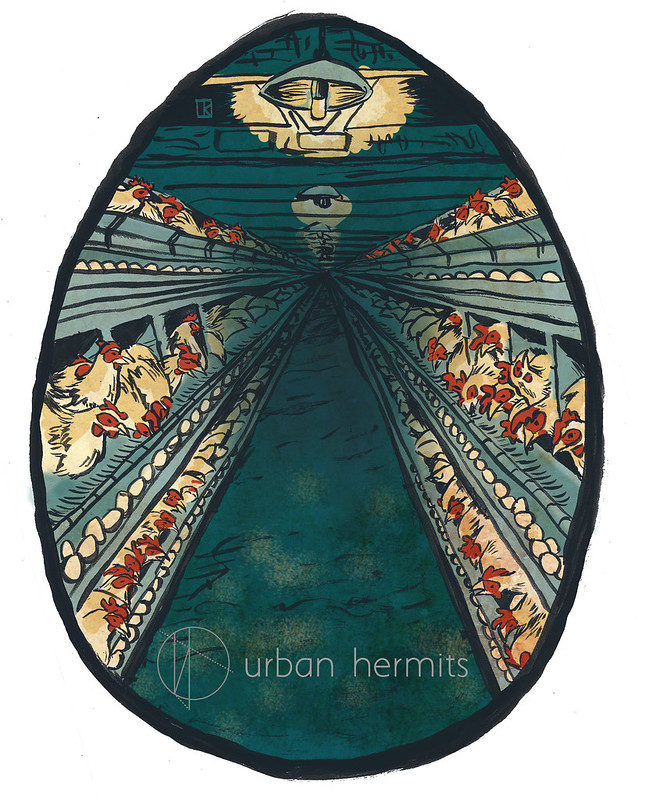We live in a world where people have become increasingly concerned about where their food comes from. Productivity is not the only thing that matters, as social factors, such as values, attitudes, and norms have a profound impact on peoples’ expectations of how food is and should be produced. Animal agriculture is a particularly hot topic because it raises numerous concerns regarding sustainability and our obligations to sentient beings that are entirely dependent on us.
In this month’s issue of Harper’s Magazine, Deb Olin Unferth has penned a beautifully written and powerful piece about the debate over how to best house egg-laying hens and some of the problems plaguing this industry in general. She concludes:
Any way we look at it, it seems impossible for the egg industry to meet all our demands: happy hens, cheap eggs, an unlimited supply. The question of the cages turns back on us: How much are we willing to pay? How much are we willing to make the hens pay? If we continue to eat eggs at the current rate—a historically unprecedented high number—the hens who produce them will be treated horribly (Deb Olin Unferth 2014:50).
Although to view Harper’s online, you need a subscription, the non-profit United Poultry Concerns has posted a copy. Click here to read the article and be sure to share it with others!

Also on the topic of proper animal housing, I have been thinking a lot about the fight for fire safety in animal agriculture. Animal agricultural facilities are not held to the safety standards required in many of the buildings we live and work in (i.e. smoke detectors, sprinkler infrastructure). This, however, is problematic as the high stocking densities and confinement found in large operations are extremely dangerous to these animals when fire or other natural disasters strike. For example, just this past month, approximately 13,000 pigs were burned to death in Minnesota and 20,000 chickens died in Pennsylvania due to barn fires. The installation of basic fire safety equipment could have prevented the death of thousands. Click here to learn more about this issue.
I encourage you to think of the impact you have on egg laying hens and all animals in agriculture. Small changes and taking responsibility for our footprints can make a HUGE difference!
Until next time,
Urban Hermits
Illustration: Lauren Korany, Urban Hermits November 2014

